This April, CUNA has been celebrating National Credit Union Youth Month with the theme: The future is yours … Picture it! Save for it! Share it!
The association has asked young members to share images of what they want their financial futures to look like and pushed credit unions to listen, learn, and help these young members fulfill their dreams.
Callahan & Associates is helping young members save for it by suggesting savings practices that have worked in real life as well as give their take on what to save for.

Alex Del Vecchio, Intern
Alex Del Vecchio, Intern
I am saving some money from each of my paychecks to start my after-college savings. I am trying to be more mindful about my budget and what I spend on.

Sam Taft, Associate Vice President, Analytics & Business Development
Sam Taft, Associate Vice President, Analytics & Business Development
I have a separate bank account that I automatically send money to every paycheck. I don’t even miss it anymore.
Also, I gradually ramped up my 401(k) contribution so I’m contributing a minimum 10% with each paycheck. Like the above, I don’t even miss it anymore.

Alyssa Cristobal, Intern
Alyssa Cristobal, Intern
As a college freshman, I am just starting to budget my money. I have a certain amount I always try to keep in my bank account after getting a paycheck so I have money saved for anything important in the future. I try not to spend all of it at once in case I need money for books throughout the semester.
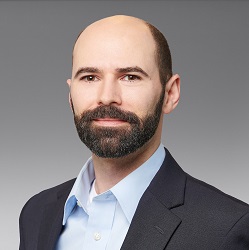
Duncan Bartley, Data Analyst
Duncan Bartley, Data Analyst
My wife and I are overpaying our car loan payments to save on interest and pay off the balance sooner.
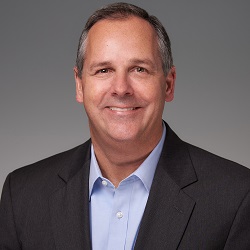
Jay Johnson, Chief Collaboration Officer
Jay Johnson, Chief Collaboration Officer
We’re funding a 529 account for my kids’ college. With higher education expenses continuing to increase, better to think of it as a long-term plan.
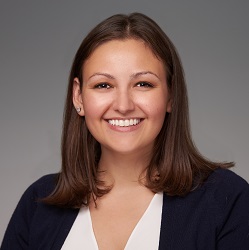
Jennifer Davis, Vice President, Information Systems & Technology
Jennifer Davis, Vice President, Information Systems & Technology
We track all our spending as a family. Since my daughter, Rose, was born, we noticed that we spent a ton on prepared foods. This week, we have started meal planning again to save money (and be healthier). Every Sunday, we plan our meals for the week and allocate our grocery spending accordingly. Our goal is to spend $200 less per month until September, and if we hit our savings goal, we will apply those funds to a short weekend away.

Marc Rapport, Senior Writer
Marc Rapport, Senior Writer
Contribute to your 401(k) at least up to the match, or you’re giving money away.
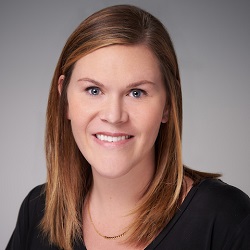
Madison Harbin, Brand Advocate
Madison Harbin, Brand Advocate
Max out your 401(k)!
Phylicia Atkins, Client Experience Specialist

Phylicia Atkins, Client Experience Specialist
Don’t let your expenses grow as your income grows! When receiving a windfall or landing your dream salary, it’s instinctive to want to spend money on the things you’ve always wanted. Spend with caution, as this is the easiest way to end up making good money yet wondering, Where does my money go every month? To fight this, try to save half of your salary increase in a separate savings account or, better, your 401(k) to limit temptation.
Erik Payne, Associate Editor

Erik Payne, Associate Editor
It sounds obvious, maybe, but know what you can and can’t afford. By understanding how much money you’re comfortable keeping in your checking and savings accounts, it’s easier to manage your spending. You know your thresholds, and you know when you blow by them. Also, credit cards are real money. It’s easy to disregard that week of swiped-for $15 lunches, but you have to pay for it eventually.
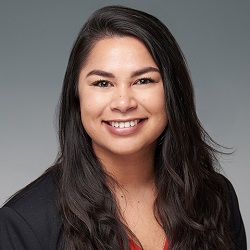
Nicole Sanders, Digital Engagement Associate
Nicole Sanders, Digital Engagement Associate
Start educating yourself early. Also save, save, save I cannot stress that enough. Starting a savings account early will pay off in the long run.
Victoria Taylor, Director, Marketing & Engagement

Victoria Taylor, Director, Marketing & Engagement
Live within your means, weigh wants versus needs, and save for rainy days or retirement. My husband, Matt, and I don’t go out to eat from Sunday through Thursday. We plan our meals and make our dinners at home. Matt takes his lunch to work every day, and we don’t buy Starbucks or eat breakfast out. That helps us save a lot in the long run.
One more lesson: Look at how to make money doing the things you already do. I look for ways to earn cash back for buying things I already planned to purchase. I got $114 in cash back from Ebates after Christmas simply because I used it while doing my holiday shopping.

Alexandra Gekas, Vice President, Marketing & Media
Alexandra Gekas, Vice President, Marketing & Media
Set up a small amount to auto transfer into a savings account every paycheck, starting with your very first one. If you start the habit from the get-go, you’ll never miss that money and be better off in the long run.

Celeste Karwan, Director, Industry Analytics
Celeste Karwan, Director, Industry Analytics
I’m contributing to my kids’ college savings plans! I would love for them to be debt-free when they finish school.

Katy Slater, Senior Vice President
Katy Slater, Senior Vice President
I’m saving to take my family to Italy next spring for my daughter, Megan’s, senior trip. Through the process everyone is learning about the cost of travel and setting priorities.
Josh McAfee, Advisor
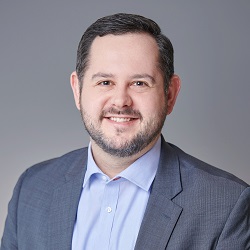
Josh McAfee, Advisor
Our seven-year-old is like a German Shepherd: If you don’t give him something to do, he gets restless and starts destroying things. So, I came up with four tasks around the house that need to be done almost every day. For each chore he completes, he earns a quarter. He can earn up to, but not exceed, $1/day.He emptied his piggy bank last week and I was surprised to see what he’d collected. We’re not as consistent as we should be about asking him to do the chores and paying him, but hopefully he’s beginning to learn about the labor/reward trade-off and why it’s important to contribute to the family in a productive way.
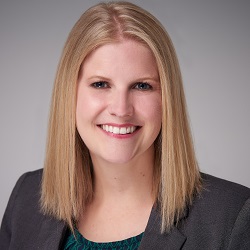
Rebecca Wessler, Editor-In-Chief
** BONUS TIP **
Rebecca Wessler, Editor-In-Chief
As simple as it sounds, budgeting is wonderful. Or, at least, track the major outflows such as rent/mortgage, utilities, car payment, etc. It’s helpful to see how much you dedicate every month to these expenses. Also, I started carrying cash to cover treats’ like a pricey coffee drink or special snack. If I don’t have the cash on hand, I don’t treat myself.